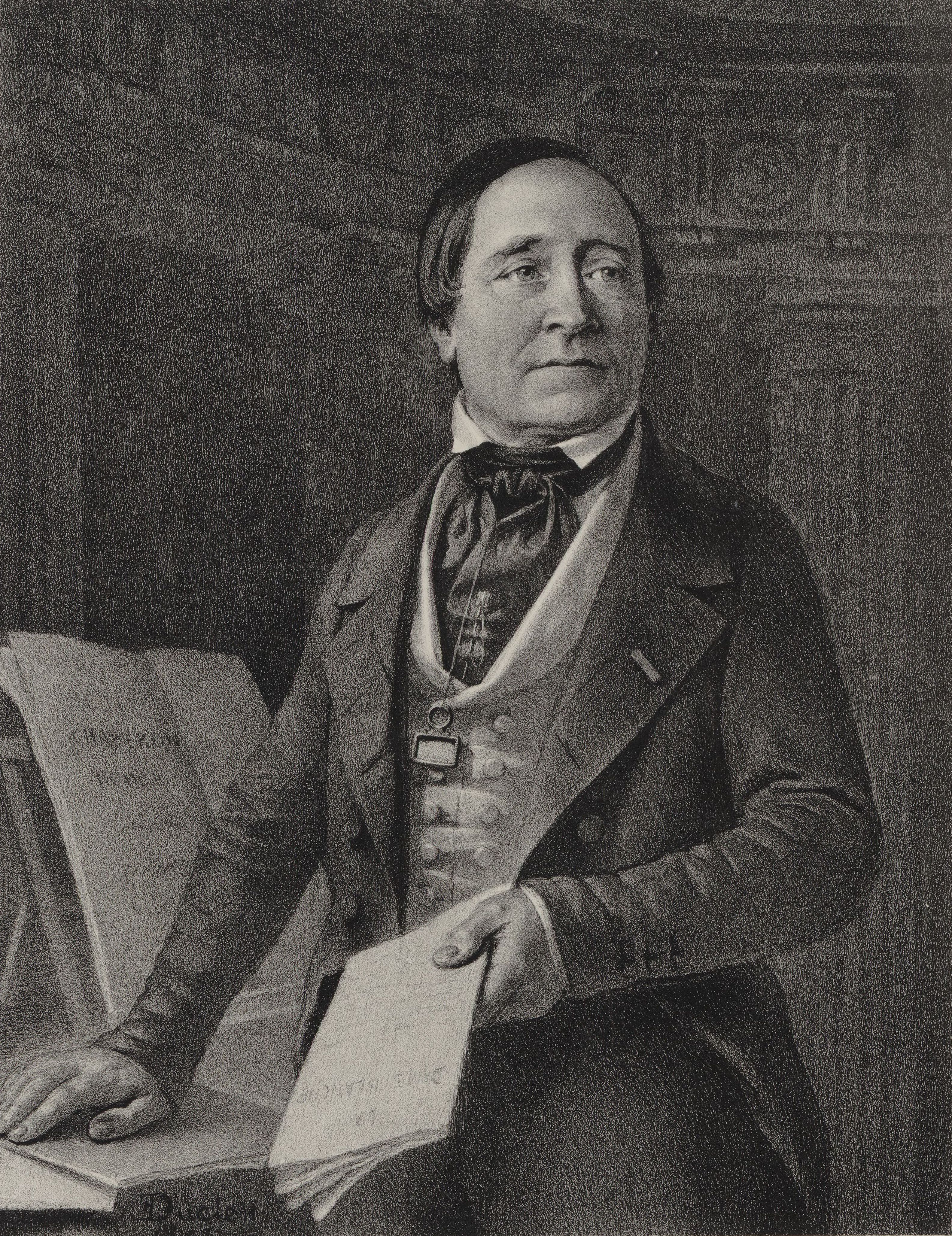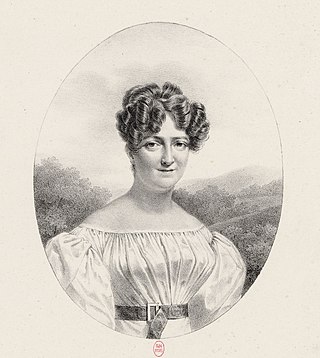
Daniel-François-Esprit Auber was a French composer and director of the Paris Conservatoire.

Augustin Eugène Scribe was a French dramatist and librettist. He is known for writing "well-made plays", a mainstay of popular theatre for over 100 years, and as the librettist of many of the most successful grand operas and opéras-comiques.

Jean-Nicolas Bouilly was a French playwright, librettist, children's writer, and politician of the French Revolution. He is best known for writing a libretto, supposedly based on a true story, about a woman who disguises herself as a man to rescue her husband from prison, which formed the basis of Beethoven's opera Fidelio as well as a number of other operas.

Manon Lescaut is an opera or opéra comique in three acts by Daniel Auber to a libretto by Eugène Scribe, and, like Puccini's Manon Lescaut and Massenet's Manon, is based on the Abbé Prévost's novel Manon Lescaut (1731). Auber's version is nowadays the least-performed of the three.
La sirène is an opéra comique in 3 acts by Daniel Auber to a libretto by Eugène Scribe, premiered 26 March 1844.

Jules-Henri Vernoy de Saint-Georges was a French playwright, who was born and died in Paris. He was one of the most prolific librettists of the 19th century, often working in collaboration with others.

Le postillon de Lonjumeau is an opéra-comique in three acts by Adolphe Adam to a French libretto by Adolphe de Leuven and Léon Lévy Brunswick.
Les noces de Jeannette is an opéra comique in one act by Victor Massé to a libretto by Jules Barbier and Michel Carré. It had its premiere in Paris in the Salle Favart at the Opéra-Comique, 4 February 1853.

Le Cheval de bronze is an opéra comique by the French composer Daniel Auber, first performed on 23 March 1835 by the Opéra-Comique at the Salle de la Bourse in Paris. The libretto is by Auber's regular collaborator, Eugène Scribe and the piece was a great success in its day. In 1857, it was transformed into an opera-ballet, but this did not hold the stage. The overture is one of Auber's most popular. The first-act finale expands on the final phrases from the first-act finale of Mozart's Così fan tutte. The composer tried to reflect the Chinese setting of the story in the music.

Les diamants de la couronne is an opéra comique by the French composer Daniel Auber, first performed by the Opéra-Comique at the second Salle Favart in Paris on 6 March 1841. The libretto is by Auber's regular collaborator, Eugène Scribe with the help of Jules-Henri Vernoy de Saint-Georges.
Les amours de Ragonde is an opera in three acts by Jean-Joseph Mouret with a libretto by Philippe Néricault Destouches. It was first performed at the Château de Sceaux in December, 1714. It is one of the first French comic operas.

Le congrès des rois was a 3-act French Revolutionary opera of the genre comédie mêlée d'ariettes with a libretto by De Maillot, a stage name used by Antoine-François Ève early in his career, and music by a collaborative of twelve composers. It was a satire directed against the "enemies of France". The libretto and most of the music has been lost. The composition of the opera was ordered by the Comité du Salut public to be completed in two days. The opera was first performed on 26 February 1794 [8 vent II] by the Opéra-Comique in the first Salle Favart and was presented a total of 2 times. At the premiere, "the length of the work and its couplets' lack of charm tired the audience, which took out its bad feelings on the ballet. Sharp whistles grew louder still, and the authors were not acknowledged." When the second performance met a similar reception, the management ended its run.

Jean-Pierre Solié was a French cellist and operatic singer. He began as a tenor, but switched and became well known as a baritone. He sang most often at the Paris Opéra-Comique. He also became a prolific composer, writing primarily one-act comic operas.
Pierre Jean Hyacinthe Adonis Galoppe d'Onquaire was a French writer and playwright.

Baron Armand-Marie Ghislain Limnander van Nieuwenhove was a Belgian composer of choral and orchestral works and church music. Knight of the Order of Leopold, he was the founder and conductor of the choral chamber ensembles Société Symphonique and Réunion Lyrique in Belgium.

François-Louis(-Ferdinand) Henry was a French baritone, who sang for about 35 years with the Opéra-Comique in Paris, where he created numerous leading roles. His stage name was Henri. He has also been referred to as François-Louis Deshayes.

La circassienne is an opera in three acts composed by Daniel Auber to a French-language libretto by Eugène Scribe based on Louvet de Couvrai's 1787 novel Une année de la vie du chevalier de Faublas. It was premiered on 2 February 1861 by the Opéra-Comique at the second Salle Favart in Paris. Set in Russia during the Russian-Circassian War, the opera was also known under the titles Morte d'amour, La révolte au Sérail, Alexis, and Faublas.

Louis Antoine Ponchard was a 19th-century French operatic tenor and teacher.

Thérèse Louise Antoinette Regnault, known under the name Antoinette Lemonnier, was a French opera singer, member of the Opéra-Comique.
Marie-Françoise-Adélaïde Gavaudan, called Mlle Gavaudan cadette and nicknamed Spinette, (1767–1805) was a French operatic soprano.















